How First Ladies on Opposing Sides of the Civil War Forged an Unlikely Bond

Julia Grant, left, and Varina Davis, right. (Photo: left, Library of Congress; right, Library of Congress)
They were both former first ladies. But the similarities between Julia Grant and Varina Davis didn’t end there. The two elderly widows were both born in 1826 to slave-owning Southern families. Both had keen intellects and literary aspirations, and spoke in soft, low voices. They had spent their lives following and supporting their high-ranking husbands, subsuming their identities in the expected fashion throughout their marriages.
Now that their respective husbands had died, each widow was experiencing a personal renaissance. But their unexpected meeting in 1893 sent shock waves through Gilded Age America. For Varina and Julia had publicly–and iconically–represented opposite sides of the recent and raw American Civil War.

As the wife of former Mississippi senator Jefferson Davis, Varina Davis had the dubious distinction of being the one and only first lady of the doomed Confederate States of America, during the four years of the American Civil War. Julia Grant spent that same period, from 1861 to 1865, traveling more than 10,000 miles with her husband Ulysses S. Grant, the supreme commander of the Union army.
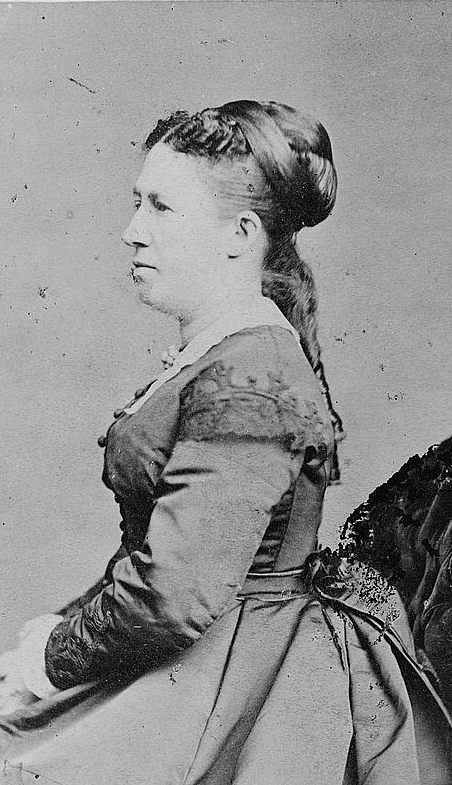
Julia Grant, c. 1875. (Photo: Library of Congress)
Julia Dent was born in Missouri to a well-to-do family. She had small, crossed eyes, and was considered rather “ugly”, a major problem in chauvinistic 19th century America. But she was vivacious, dramatic and active–she loved to play piano, hunt, and fish. She would also become a financial expert. After her marriage to West Point graduate Ulysses S. Grant in 1848, she became a “road warrior,” following him with their growing brood as he rose through the ranks of the U.S. Army.
The Grants were exceptionally close, and Julia claimed that she always knew she was “marrying a future president.” During her eight years as first lady, from 1869 to 1877, Julia was credited with opening up the White House and became one of the first modern masters of press manipulation. She relished being first lady, calling her time in the White House “the happiest period” of her life.
After her beloved “General” died in 1885, she became the gatekeeper of his legacy, granting many interviews extolling her husband’s virtues with “a certain quaint simplicity and a charming, almost childlike candor,” according to the National First Ladies’ Library. She became great friends with a succession of fellow first ladies, including Lucy Hayes, Lucretia Garfield, Frances Cleveland and Ida McKinley. She split her time between Washington D.C., where she hosted many parties, New York City and California.
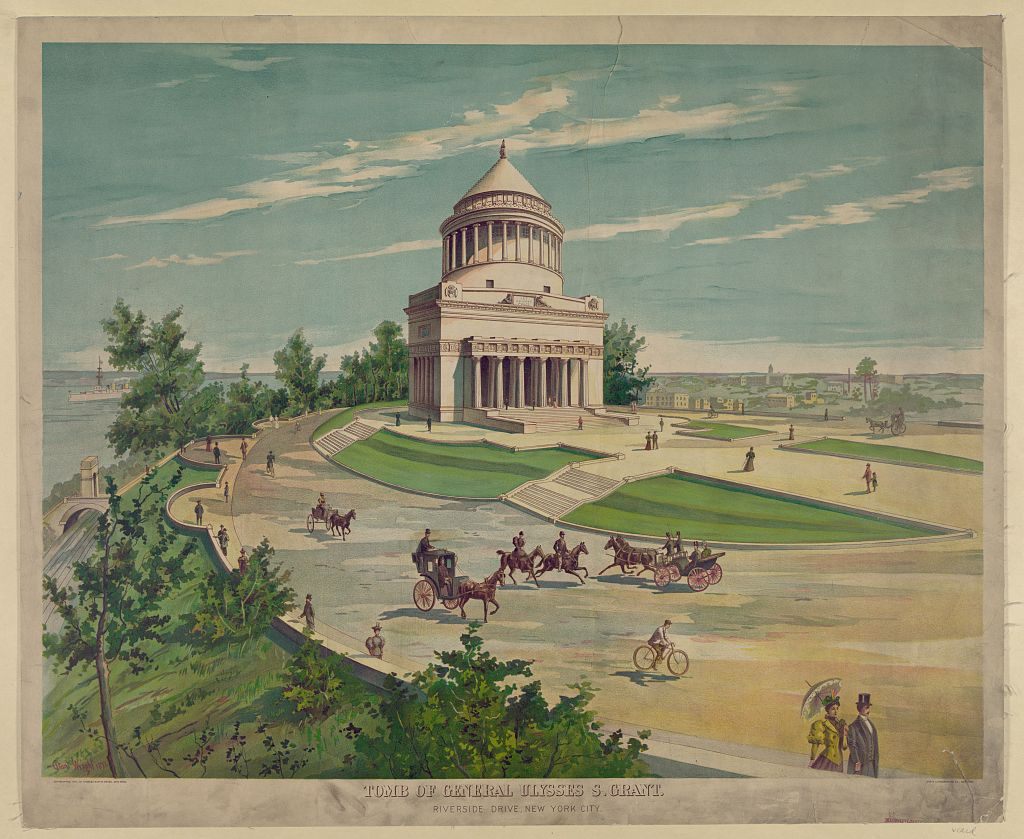
A depiction of the tomb of General Ulysses S. Grant, 1897. (Photo: Library of Congress)
Varina Davis’ marriage to Jefferson Davis was far less fulfilling than that of her counterpart. Although she stood him in public, he did not have her full support. In fact, she was devastated when Jefferson was elected the President of the Confederate States. According to her biographer Joan E. Cashin, she believed that “the South did not have the material resources to win the war and white Southerners did not have the qualities necessary to win it; that her husband was unsuited for political life; that maybe women were not the inferior sex; and that perhaps it was a mistake to deny women the suffrage before the war.”
The intellectual, well-read, erudite and witty Varina Howell had been born into a ne’er-do-well branch of a respected family in Natchez, Mississippi. Her family was considered suspicious for another reason–they had numerous relatives in New Jersey and Varina boasted a “swarthy” complexion, which caused detractors to refer to her as a “half-breed.”
In 1845, she married the strapping yet rather weak and petulant Jefferson Davis. Varina claimed her happiest period in life had been in Washington D.C. in the years before the war, when Jefferson was a senator. Here she basked in close female friendships with women including Minna Blair, Matilda Bache Emory, Mary Ann Cobb and Lizzie Lee Blair. Her marriage to Jefferson was a difficult one, and Varina found it easier to confide in her female friends. According to Cashin, Varina believed that few women had ever “loved and trusted their friends as much as she loved and trusted hers.”

Varina Davis, 1849. (Photo: Public Domain/WikiCommons)
The war would test many of these friendships. Varina seemed to know that the South’s unjust cause was hopeless from the start. But she followed her husband to Richmond and did her duty, even as she secretly (some would say treasonously) sent letters to her cherished friends in Washington and to her Northern family members. After the war, she followed her husband in exile to Canada and Europe and back to the States, raising her children and managing the family’s finances while Jefferson fell in love with another woman and was absent for long stretches of time.
After Jefferson died in 1889, Varina was free of the unfaithful man she had never stopped loving and a marriage that had brought her so much unhappiness. In 1891, after publishing a well-received biography of her husband, she accepted her friend Joseph Pulitzer’s invitation to be a columnist for the New York World. Varina and her youngest daughter, Winnie, left the South for New York City. This move shocked and scandalized most Southerners, who had always questioned her loyalty to the cause. But Varina flourished in the city and soon presided over Sunday salons, where “her conversation sparkled, her wit was keen, [and] her observations sharp,” according to the book, First Lady of the South: The Life of Mrs. Jefferson Davis.
These two women, whose lives had been filled with unlikely twists and tragedies, finally met on a fine summer day at a resort on the Hudson River. Biographer Ishbel Ross recounted the meeting:
They met on a June Day in 1893 at Cranston’s-On-Hudson. Varina had arrived to watch a cadet parade at West Point. Mrs. Grant had been staying there for some time and when she heard that Mrs. Jefferson Davis was a fellow guest she went to Varina’s room to welcome her.
“I am Mrs. Grant,” she announced, as Mrs. Jefferson Davis opened the door.
“I am very glad to meet you,” Varina responded. “Come in.”
After dinner they sat together on the piazza, and the other guests watched this curious tableau with interest. When Mrs. Davis went to bed, the widow of the Union General remarked, ‘She is a very noble looking lady. She looked a little older than I had expected. I have wanted to meet her for a very long time.’
Reporters at the resort flocked to ask Julia what else she thought of Varina. Julia said that she hoped they would be friends. The Northern press had a field day with this most symbolic of meetings. One fellow hotel guest claimed, ”They constituted the perfect symbol for the end of sectional rancor.” The New York Times breathlessly reported that the meeting “promises to ripen into warm friendship.”
Luckily enough for these enthusiastic bystanders, Julia and Varina did indeed become good friends. In New York, they would go on long drives and would often lunch together while on vacation at popular health resorts. Their two daughters also became close friends.
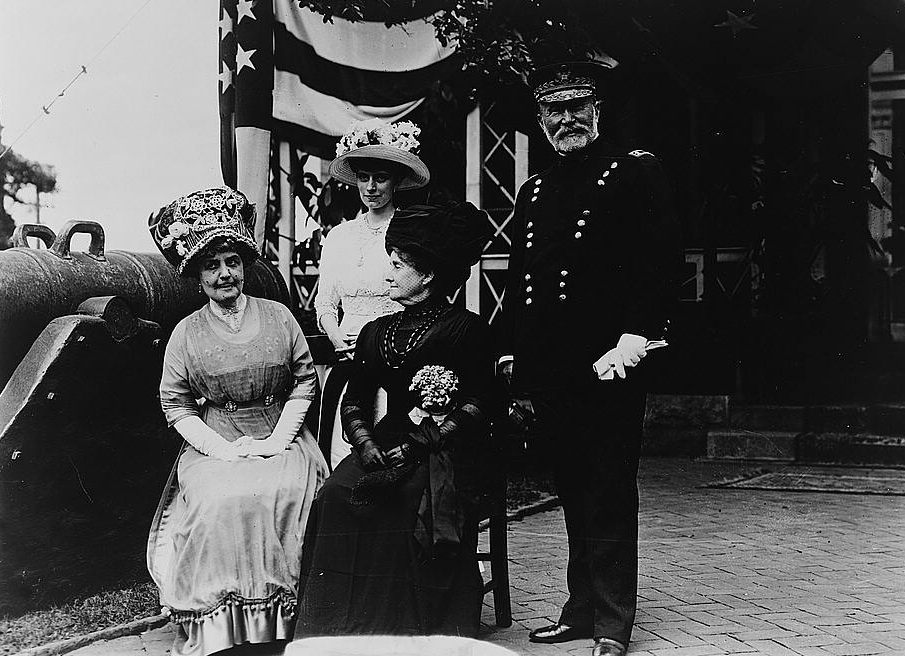
Group portrait of Ida H. Grant, unidentified woman, Julia Dent Grant, and her son Frederick Dent Grant. (Photo: Library of Congress)
Varina and Julia no doubt had much to talk about. Both had been controversial first ladies. Varina had been accused of being anti-Southern, fatalistic, crass, biracial and rude. Julia had been charged with being haughty, having too much influence on her husband, and of using her position for material and political gains. Her loyalty to the cause during the war had also been questioned because of her Southern roots, causing her to once admonish a detractor, “No, indeed, I am the most loyal of the loyal.”
Both had seen the horrors of war, the weakness of man, and considered the Civil War years to be a troubled “dream.” They tentatively approved of women’s suffrage. Unfortunately, they remained silent about the rights of former slaves.
Each woman also fervently believed in the importance of the reconciliation of North and South. They were politically savvy enough to know that articles about them riding together and praying at Grant’s Tomb would have a healing effect on the still, in many ways, divided nation. Varina believed “northerners and southerners had more in common than they knew.” She wrote that it had been God’s will for the South to lose, shocking many of her Southern comrades.
Davis felt no ill will toward the late General Grant, who she thought had treated her husband fairly during the end of the war and his subsequent imprisonment. In 1901, after the publication of a defamatory biography of Grant, Varina was asked by the New York Sunday World to write a rebuttal. She claimed that the very fact that she had been asked was proof that the country was slowly healing.
Varina asked Julia to share anecdotes about her life with her husband, since she had never met him. The resulting article, titled “The Humanity of Grant,” declared that ”bitter prejudices and resentments have been much modified by intercourse, the inter-marriage and inter-education of the people of the two sections.” It was one of the most extraordinary documents ever written by a “daughter of the south:”
I hope there are people both north and south who are already looking above and through the smoke of battle to take the just measure of the statesmen and commanders who have left their fame unclouded by atrocities committed upon the helpless who fell into their power, and in this galaxy I think General Grant will take his place unquestioned by his former antagonists.”
Over the years, the two women’s friendship grew deeper and stronger, and the press continued to take note of this connection that would have been impossible just three decades before. “There is something impressive in the great friendship,” the Kansas City Star reported in September 1902:
The widows of two wonderful men who opposed each other and made American history and now staying in a little Canadian village called Coburg. They have unpretentious cottages on adjoining lots, and see each other every day. Coburg is a group of cottages… and naturally enough the Grant and Davis habitations, standing side by side…is one of the interesting sights of the village.
The cottages…back upon a small, quiet lake, and every morning Mrs. Grant and Mrs. Davis sit in steamer chairs watching the reflection of the trees and the undisturbed surface, seldom ruffled even by a stray canoe. Both Mrs. Davis and Mrs. Grant hold themselves aloof from the other cottagers and seem perfectly content to pass the idle summer days under the pines.”
When Varina heard of Julia’s death four months later, she fell to her knees and began to pray. She would publicly defend both of the Grants for the rest of her life. In 1905, she would tell a reporter she felt for Julia a “great respect and sincere affection.”
After Varina died in 1906, Julia’s son General Frederick Grant sent an artillery company to escort Varina’s cortege as it made its way out of New York City. It was a fitting tribute to a woman who once ended her letter to his mother with the words, “with sympathy of one who has suffered in a like way. I am affectionately your friend.”



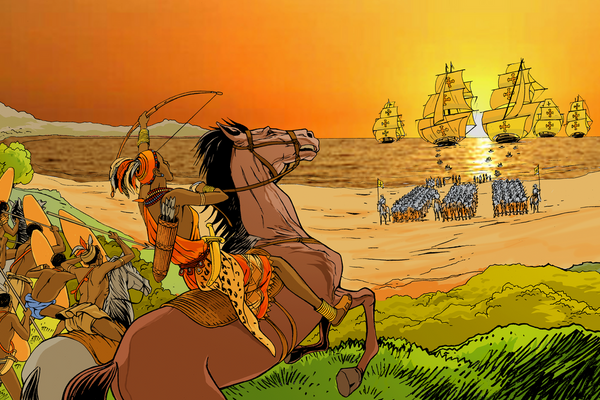
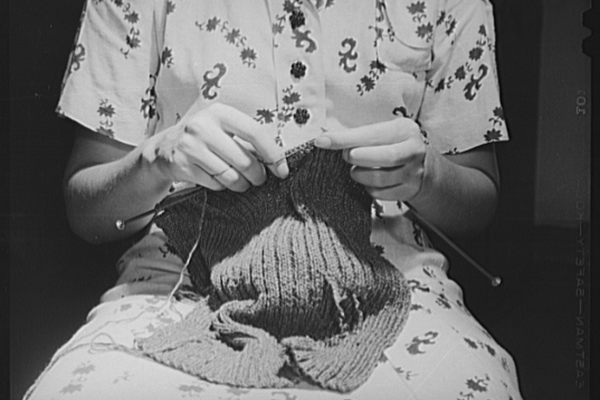
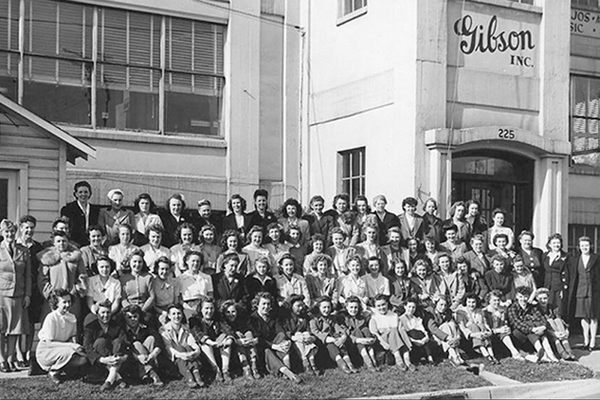
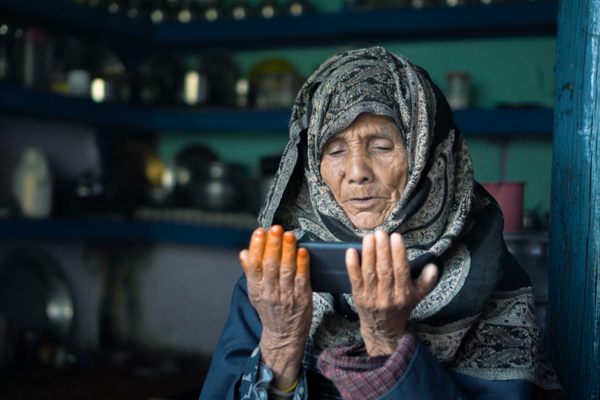



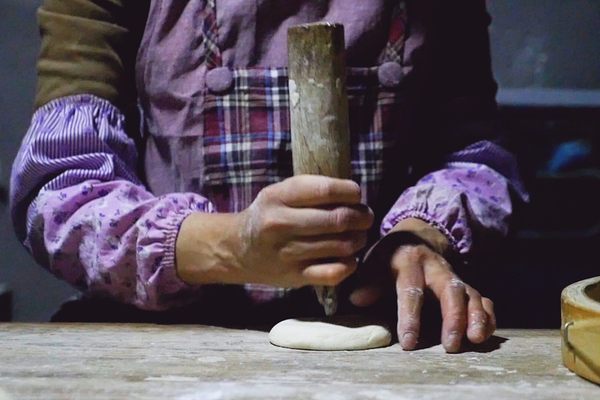


Follow us on Twitter to get the latest on the world's hidden wonders.
Like us on Facebook to get the latest on the world's hidden wonders.
Follow us on Twitter Like us on Facebook